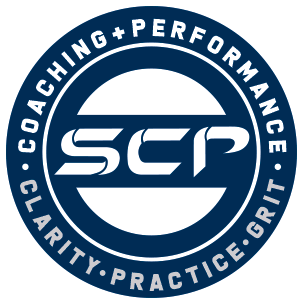Inspiring Action
We’re biased toward action, but what action are we consistently taking? Is it cultivating the high-performance culture that we seek? Are we doing the right things at the right times?
There's a great video, viewed and shared thousands of times, that clearly demonstrates what it looks like to support the development of competence through deliberate practice. The Baltimore Orioles' all-access video capturing the exchange between infield coach Bobby Dickerson and first baseman Trey Mancini is three and a half minutes of on-point coaching and a mini masterclass in deliberate practice. For any leader, it's a must-watch. Deliberate action. Consistent feedback. On repeat. The loop builds competence, with the improved competence comes confidence and with that, results achieved.
A leader as coach doesn’t simply say, for example, be a better first baseman. A leader as coach creates environments to support the development of the competencies for their player to be a better first baseman. For leaders, once we're clear on what we're doing well and what needs improvement, then we need to move quickly to practice the behaviours and “drills” to support improvement with both strengths and gaps.
If seeing clearly is a common challenge for leaders, a close second is consistent practice. At SCP, we believe in deliberate practice because consistent habits and intentional actions have an impact on the results and high performance we're able to inspire in our teams. We often remind the leaders who we coach that what they do and what they support others to accomplish influences the growth and performance of their teams. For leaders to cultivate the environments that encourage their teams to thrive, they need to follow their clear, aligned vision with attention to consistent action that keeps the team on track. Leaders also need to offer their teams consistent feedback to ensure that their teams continue to amplify their strengths and improve on shortfalls in performance. The combination of deliberate practice and consistent feedback, enables leaders to develop the competence of their teams.
Clear vision and practicing great habits are an excellent recipe. What habits are effective leaders practicing consistently? A powerful one that we encourage is reflection. Consistent reflection enables clarity, which sets up leaders and teams for success.
Reflection can take many forms. Sometimes reflection is simply taking the last five minutes of a meeting to check in on the one thing that each team member was impacted by, found most useful or is committed to doing as their next step. Sometimes reflection is the 30-60 minutes at the end of a day or week to review how you fared against your goals or objectives. And sometimes reflection is the PESTLE, or SWOT analysis that you develop and review as part of the post-game on a project or program. The key thing is to make and take the time to stop and survey how things are going in your organization or team. How’re you measuring up to what you’re measuring? And how quickly can you practice being the best at getting better?
“Practice isn’t the thing you do once you’re good. It’s the thing you do that makes you good.”
